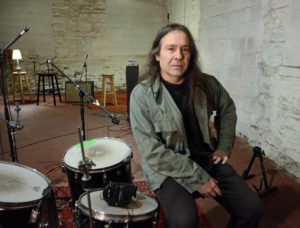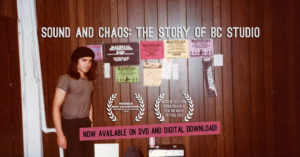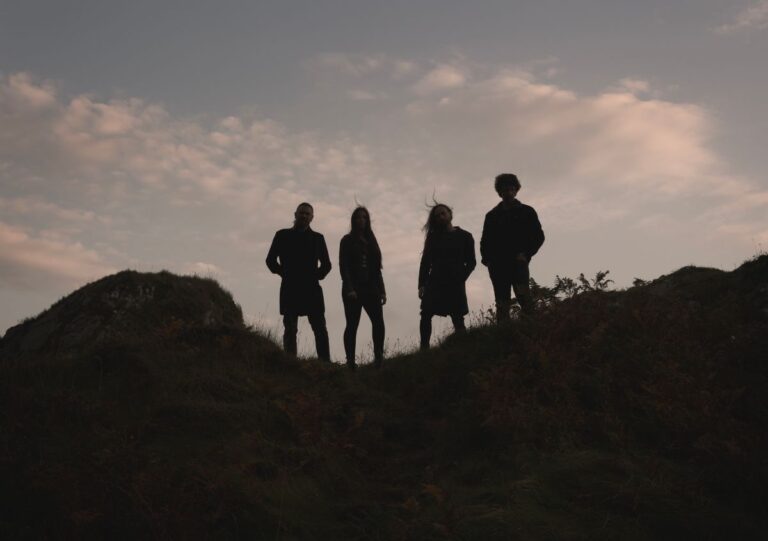Over thirty years ago a young Martin Bisi, now a heralded producer, had a chance encounter with Brian Eno. The result was the founding of BC Studio, a breeding ground for creativity and counter-culture in which acts such as Swans, Sonic Youth, Angels of Light and John Zorn created some of their most seminal works. Produced by Bisi, a polymath whose own work is rightly lauded, many of the bands produced layered, eclectic works which are still considered classics today. Sonic Youth, for example, cut ‘Bad Moon Rising’ and ‘EVOL’, as well as their bizarre, yet creatively challenging, Ciccone Youth project; whilst the Swans spent time there recording the elegiac ‘The Great Annihilator’. In short, BC Studio, like Dave Grohl’s beloved Sound City, is more than simply a place to record. The unique vibe which resulted from not only Bisi, but also a number of artists, living in the studio meant that BC actively fostered creativity and artistic endeavour and Martin Bisi’s discography today reflects that.
In 2014, two film makers (Ryan Douglas and Sara Leavitt) came together to produce a documentary about the studio. Ryan’s primary focus was very much the music that was created in the studio whilst Sara focused on a more unnerving social issue – that of gentrification and the ever-rising ground rents that have forced creativity out of the cities. Whilst the threat facing BC Studio was immediate, it is a topic that resonates strongly here in the UK as ever-more venues close in the face of price-hikes and vexatious noise complaints from newly-built accommodation. An opportunity to speak with Martin as he tours both the film and his music, was not to be missed and we took the opportunity to discuss his career, how the film changed his perception of his own catalogue and the extent to which greater awareness has averted the threat facing his studio.

Martin Bisi, a record producer and engineer, in his studio on Third Avenue in Gowanus.
How did the idea for ‘Sound and chaos’ come together?
It was the idea of the directors. They both worked a day job video editing, and were looking to collaborate on a short film, finding some common subject. The topics of interest were music, more so for Ryan Douglass as he was a drummer in a metal band in Texas, and gentrification/social for Sara Leavitt. And Sara didn’t want to do a typical Brooklyn Gentrification documentary. So a friend suggested the studio, and it was a fit. And it grew from the expected 20min short to feature length.
Was it a challenge to look back across your history and find reference points that would help you tell the story?
Yes, it was hard to see how things fit together. And the directors guided that. It helped to see it via the lens of the space itself, rather than just my discography. So seeing Afrika Bambaata and the Zulu Nation sharing space with Ginger Baker and Iggy Pop, and into the future, like Pop 1280 and White Hills drives the point.
You’ve lived at B.C studio since you were eighteen, or thereabouts, so the studio’s story really is your story too – has the process of creating this film given you a different perspective on your creative life?
Well yeah, definitely. The messaging of the film worked on me too. I always saw the studio as an asset, technically, for recording. but its importance as a type of space that’s rare and valued, and potentially loved, has emerged in people’s response, and in my mind. So it’s been revolutionary to my view of what I’ve been doing this whole time.
Your earliest experiences of music, I believe, were rooted in a very disciplined approach to classical music – an experience that many young people shared – how do you feel that coloured your own musical development?
I think mainly it coloured my “ear”, and how I approach layers, and a sense of gravitas and drama. I feel in opposition to classical music, which of course means appropriating some elements of it.
Your discography showcases a list of bands that were unafraid to experiment with sound and textures, did you feel that, by working with them, you were challenging not only their boundaries but also your own?
Yes, artists always guide me, at least equally to how much I guide them. In a sense my work is in the details, but with a strong eye to the big picture. I always feel that the best work will happen with strong input from the artist. I don’t think my working in isolation is going to make a better record.
You did the Sonic Youth records ‘Bad moon rising’ and ‘Evol’, but more interesting, in terms of pure sonic invention, was the Ciccone Youth album – did Sonic Youth draw upon your early experience working with hip-hop artists on that record?
Definitely. Sonic Youth did Ciccone Youth with me because of my background in hip hop and also dance music at that time. They even came back to me later for the Master=Dik single, after the point where they had otherwise moved on from working with me. The side of Master=Dik that if did is all weirded out electronica, very lo-fi. The other side was recorded by Wharton Tiers who has a more garage aesthetic, more in line with the initial aesthetics of the band. That juxtaposition reveals a lot.
With such a wide range of artists recording with you, did any particular work that you did bleed into your own creative output either consciously or, perhaps unconsciously but visible in hindsight?
I have two aesthetics in my personal work. You can see a total contrast between ‘Sirens Of The Apocalypse’ which is funny, somewhat poppy, with social commentary on daily experiences, and ‘Ex Nihilo’ which is darker mostly, in topic and sound and deals with almost epochal topics like the dawn of language and religion, anthropomorphism and the sacredness of eroticism. Working with the band Sleepyhead was a nice inspiration for the Sirens vibe. And Ex Nihilo draws from years of Michael Gira and Foetus. Sonically in both vibes there’s Rhys Chatham, maybe even Serena Maneesh

Although the film covers the immense creativity that was unearthed at B.C. it also looks at a threat to the studio – do you think that the awareness raised by the film will help to protect B.C? Are you still keen to be the last one standing in the neighbourhood?
So far the film has helped protect me. At the very least, the response to the film, and press, has changed the dynamic with the management of building. I don’t think they really knew the whole picture, or even how a studio functions and the importance of having that kind of space. I think the amount of passion in the general response surprised them. This is increasingly important as the building tries to present itself as a champion of the arts, and affordability in precisely my kind of space, while at the same time talking about displacing me. This is unfortunately where it’s going within the next couple years.
I might be actually the last DIY artist standing. Where it’s going is that very privileged artists might be flooding into my surroundings. I’ve become pretty allergic to the other side of the arts world
In a recent interview you said you went through a period of questioning the very nature of what you do – do you still believe that the album is a dying art form, or is it just that the music industry is so diffuse it’s not always easy to see that there are still those that care and are waiting to find something exciting? Did the film help you to evaluate your thoughts on the value of your work from a greater distance?
My feeling about the vitality of the album form and recording arts, started shifting just before the doc, mostly with the return of vinyl. That shift says a lot about people’s values. I also think Kickstarter helped. Artists would explain why they needed funds to go into a recording studio, and why it would be a different experience from live, and an essential component of an artist’s expression. And of course what the benefits were, as opposed to doing it on the cheap at home. So it’s back, largely, but not fully. I was wrong I guess.
It seems strange to see you promoting a documentary like this because, despite your vast catalogue of music, you’ve never really seemed to wish to be in the limelight even with your own music. Has this film helped you to bring your own music (which you’re touring alongside the film) to a wider audience?
Including a screening of the documentary in an event, makes a better event. So that has helped in and of itself, but I also think more people have read into my personal music, appreciating clues of what I’ve done as a producer.
I have become somewhat more extroverted over time. And that’s in part because I’ve seen that’s what it takes, or at least that it greatly helps. So it’s also just being professional. I have to take photos, talk to the audience, make videos; and it helps to kick it out. And I soon realized that I like it and I don’t fear it, so why not have fun?



